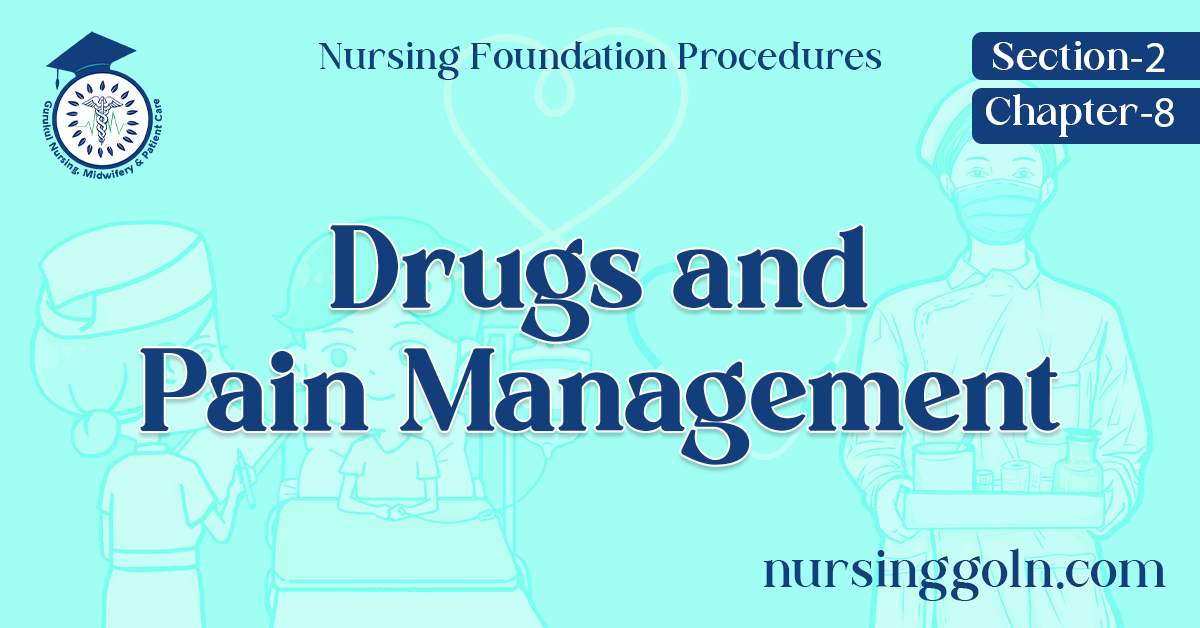Today our topic of discussion is Drugs and Pain Management.
Drugs and Pain Management

Drugs used in Pain Management
- Analgesics: May interfere with the pain transmission from periphery to center (cortex or thalamine). Some drugs alter the perception and response to pain
- Narcotic analgesics: These drugs alter the perception of pain experience and behavioral response to the pain
- Nonsteroidal anti-inflammatory drugs: May usually act at the periphery inhibiting the transmitting substance which cause pain e
- Serotonin blockers: They act on serotonin by blocking its receptors. This analgesia is produced
- Anesthesia: The functional part of the nervous system is temporarily or permanently destroyed to interrupt pain transmission from periphery to the spinal cord and cerebral cortex or thalamus
- Nerve blocks: For this local anesthetics are used. The effect may be for few hours. Usually used before any short surgical procedures.
Nursing management of pain: Pain is considered as complex phenomena to understand and to assess as well. Pain has different components such as sensory, affective and cognitive.
- Accept the patient as he is
- Accept and acknowledge the pain as what the patient feels or expresses
- Assist the individual to identify the situation when or where the pain started
- Assist the individual to identify the situation which intensifies the pain
- Do the assessment using the performa available
- Administer the drugs accordingly
- Give the individual to ventilate the feelings
- Give emotional support
- Give altered lifestyle to prevent situations which trigger the pain.
- Family members can be involved in sessions.

- Family members can be kept aware of the situation which can avoid the triggering of pain
- Family members can be taught some physical measures which can comfort the patient
- Most important nursing measure is to have a very good personal relationship to keep the patient physically and psychologically supported.
